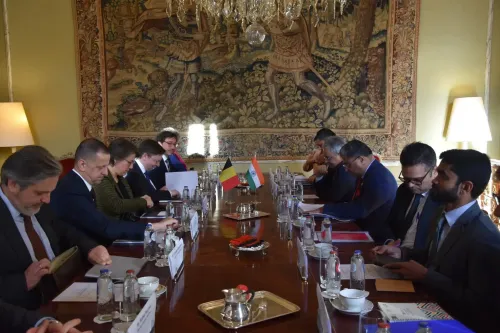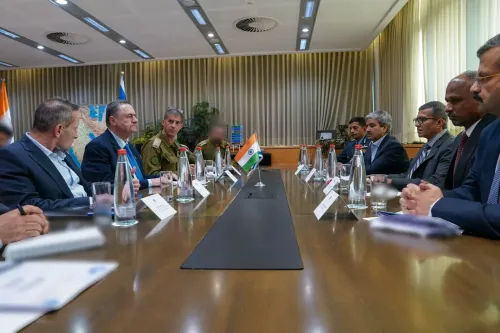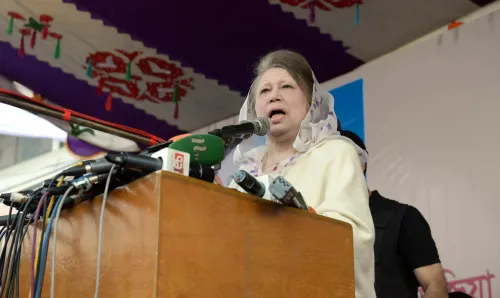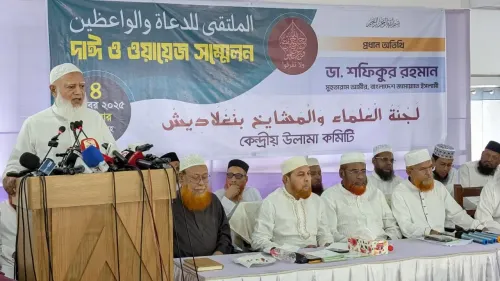Is the Baloch Liberation Army Initiating a New Order in South Asia?
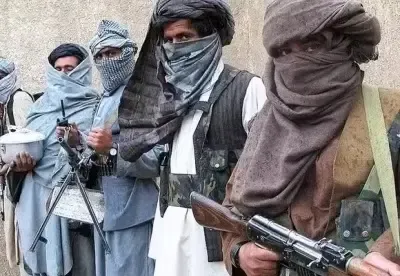
Synopsis
Key Takeaways
- BLA claims responsibility for 71 coordinated attacks.
- Targets included military convoys and intelligence centers.
- Group rejects being a foreign proxy.
- Calls for international support to achieve autonomy.
- Pakistan's actions are viewed as hypocritical.
Balochistan, May 12 (NationPress) The Baloch Liberation Army (BLA) has taken credit for a significant offensive that involved 71 synchronized attacks at over 51 sites within what it terms as "occupied Balochistan."
In a distinct declaration, the organization has issued a grave warning about an impending regional shift, asserting that "a new order has become unavoidable" in South Asia.
Disavowing any claims of being a foreign proxy, the BLA characterized itself as "a dynamic and decisive party" in the evolving strategic dynamics of the region.
Reports indicate that the assaults targeted Pakistani military convoys, intelligence hubs, and mineral transport operations, as part of a broader initiative to contest Islamabad's control over the resource-abundant province.
"We firmly reject the notion that Baloch national resistance operates as a proxy for any state or power," the BLA emphasized.
"The BLA is neither a pawn nor a passive observer. We are fully aware of our rightful place in the current and future military, political, and strategic configurations of this region," it further stated.
Accusing Pakistan of hypocrisy and deceit, the organization alleged that Islamabad is concealing its war agenda behind diplomatic gestures.
"Any discourse regarding peace, ceasefire, and brotherhood from Pakistan is nothing but a facade, a tactical maneuver, and a temporary trick," the BLA cautioned, urging India and the global community not to be fooled by Islamabad's "misleading peace rhetoric."
The group described Pakistan as "a state whose hands are stained with blood and whose every promise is soaked in it."
BLA spokesperson Jeeyand Baloch stated that the group's recent offensive was not solely aimed at causing destruction but was also a means to assess battlefield readiness.
"During the recent escalation of military tensions between India and Pakistan, the Baloch Liberation Army (BLA) opened an additional front for the Pakistani military, executing 71 coordinated strikes that lasted for several hours at more than 51 locations across occupied Balochistan," he revealed.
"The purpose of these strikes was not merely to inflict damage on the enemy, but to evaluate military coordination, ground control, and defensive capabilities to enhance readiness for future organized combat."
The BLA's statement also launched a fierce critique of Pakistan's intelligence agency, the ISI, accusing it of promoting international terrorism.
"Pakistan has not only served as a breeding ground for global terrorists but also as a hub for the state-sponsored development of lethal terrorist organizations such as Lashkar-e-Taiba, Jaish-e-Mohammad, and ISIS," the statement articulated.
"The ISI is the network facilitating this terrorism... Pakistan has evolved into a nuclear state of violent ideology," it added.
Appealing to the global community, especially India, the BLA requested political, diplomatic, and defense support.
"If we receive political, diplomatic, and defense assistance from the world, particularly from India, the Baloch nation can eradicate this terrorist state," the statement declared.
The group asserted that such backing could pave the path for "a peaceful, prosperous, and independent Balochistan."
In a dire warning, the BLA cautioned that Pakistan's ongoing trajectory poses a global threat.
"If Pakistan continues to be tolerated, its very existence may lead to the destruction of the entire world in the coming years," it stated.
"The control of nuclear arms by a fanatic military establishment is a ticking time bomb -- not only for the region but for global security."
Meanwhile, Pakistan's Army Chief, General Asim Munir, dismissed the unrest, asserting that it is driven by no more than 1,500 individuals.
Despite its rich natural resources, Balochistan has long endured economic neglect.
The central government, under the guidance of the Islamabad-Rawalpindi axis, has been accused of exploiting the province's wealth without investing in its populace.
This current wave of violence is part of one of the longest-standing liberation movements in the region, reflecting decades of unrest, marginalization, and demands for autonomy.

